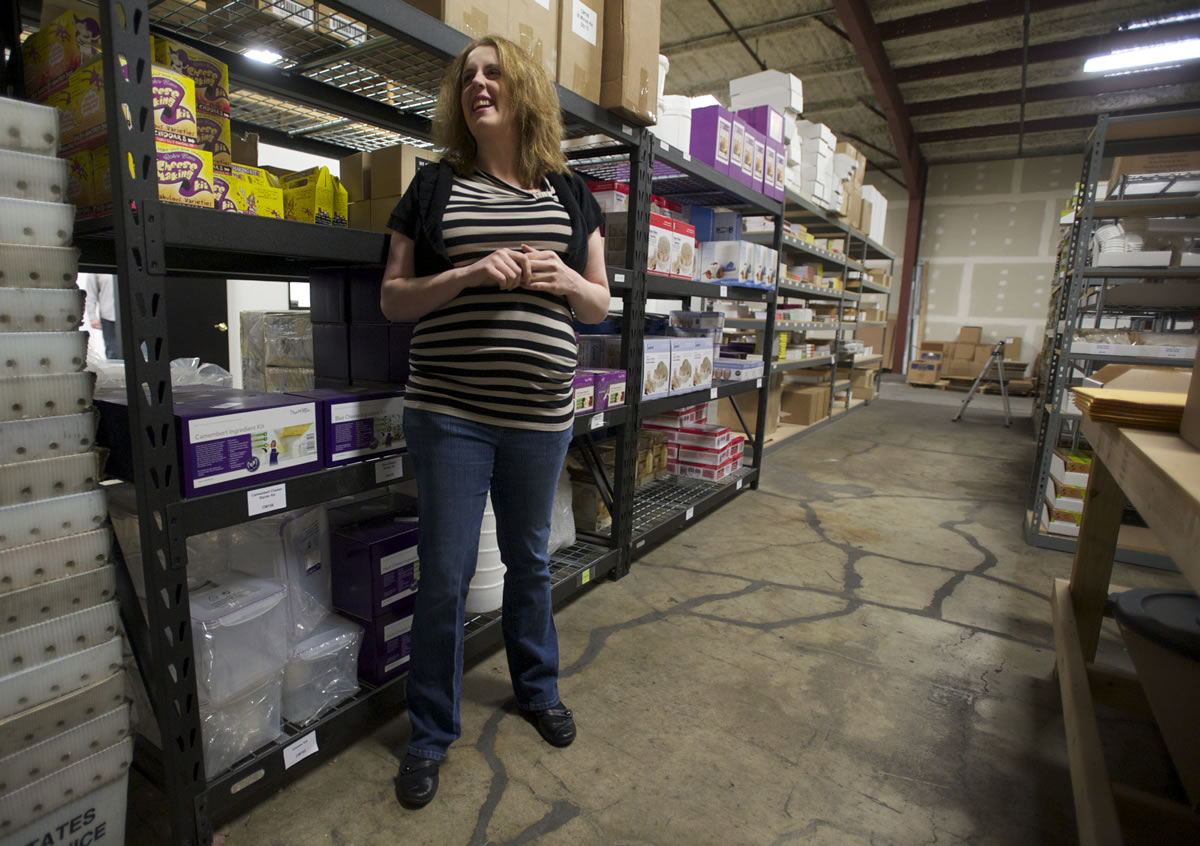For Julie and Eric Feickert, their luck has been all about culture.
It started five years ago when Julie, pregnant with the couple’s first child, started stripping processed and unnatural food from her diet and instead chose to make her own yogurt from a starter culture.
It followed two years later, when Feickert, 33, realized there wasn’t a reliable place online to help people interested in making their own fermented foods. So she started Cultures for Health, an online store that sells cultures and starters for products including yogurt, kefir, kombucha, sourdough, cheese and even natto, a Japanese fermented soybean dish.
Their leap into the culture business happened to coincide with a change in American culture — one where food-conscious consumers take production into their own hands.
“About four months after we started, the whole ‘real food’ thing took off — that’s something we didn’t see coming,” Feickert said Thursday in the company’s east Vancouver warehouse. “We wanted to make these products accessible to everyone. Before, you had to know someone who could pass (the culture) on to you.”
In the three years since the company’s gone live, at Cultures for Health, business has exploded — growing even faster than the cultures it sells.
A one-woman show has grown to employ 13 people and three subcontractors. Eric Feickert left a job in high-tech and is a co-owner, and Julie left behind a career in academia. This week, the company’s varieties of heirloom Scandinavian yogurt cultures were mentioned in a feature story about yogurt cultures on National Public Radio, a boon that crashed its website for a short time.
“That was crazy,” Feickert said of the influx from public radio listeners.
Cultures for Health has grown two- to threefold each year, Feickert said. She declined to say how much the company earns, but said it ships thousands of orders of the $12 to $18 cultures each month nationwide.
Making your own yogurt, kefir or kombucha, a fermented tea-based drink, is also much cheaper than buying it. As NPR reported this week, “some bacteria that grow and feed on the sugar in milk — the process that ferments milk into yogurt — can procreate indefinitely in new generations of yogurt” that can be used for new batches.
Cultures for Health’s most popular item is milk kefir grains, the granules that are the base of the liquidy yogurtlike drink. It ships about 1,000 of the grains each month. The reusable culture is $18; one quart of the nonreusable stuff in stores can reach $6.
Advocates say that the beneficial bacteria in home-grown yogurt and other products is far more abundant than in store-bought products. The bacteria can help with digestion and have other positive benefits.
For Feickert, it’s about having the knowledge that you’ve been with your yogurt from day one.
“The main thing you get when you make you make your own food is control,” she said. “You get so much control about the quality of your ingredients.”
Most of their orders go out to the Midwest or the East Coast, where there aren’t as many health food stores and not as many people who could give away a part of their own starter. To that end, many of the company’s employees are involved in customer service: answering calls, running live chats and responding to emails from nervous first-timers.
“This is a lost art in our culture for sure,” Feickert said. “It seems to have skipped a generation … our grandmothers knew how to make their own yogurt. But it’s coming back, we’re having to re-learn the skills.”
Growth plan
The cultures are grown in a professional kitchen in Oregon City, Ore. before being either freeze-dried or dried at a low temperature, depending on the product, before being sent to the Feickerts’ warehouse for shipment.
Pregnant with the couple’s third child, Feickert said her family’s plan is to keep growing the business and put their kids to work stuffing boxes when the time comes.



